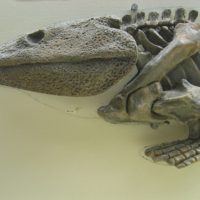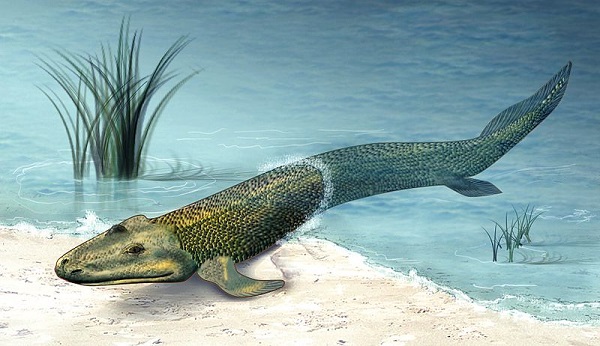The Devonian Period (419.2-358.9 Ma) was a time of great change globally. The Potomac Highlands of West Virginia record the transition of shallowing sea waters filled with marine invertebrates to delta swamps with treelike clubmosses and ferns. Though thought of as the “Age of Fishes”, many other amazing transitions were happening, such as the rise and spread of land plants and the Acadian orogeny which was responsible for much of the Appalachian Mountains. Come travel the country roads with us as we learn more about this critical time window into how West Virginia became the Mountain State.
Nick Gardner is a librarian at Potomac State College in Keyser, West Virginia. He received his MLIS from Clarion University of Pennsylvania and his bachelor’s degree in Biology from Marshall University. When not teaching library instruction or tending to the reference and research needs of students and staff, he studies the West Virginia Paleozoic rock record with Nate Van Vranken, a fellow colleague from Potomac State College who teaches biology, geography, and geology classes. Van Vranken primarily is interested in the Cretaceous Western Interior Seaway and its fauna but is also interested in nearby fauna in the southern and eastern coastal plains of Appalachia which are now the Gulf of Mexico and Atlantic Ocean. Van Vranken received his Master’s degree in Geology from the University of Texas at Permian Basin and his bachelor’s in Interdisciplinary Studies from the University of Texas at Arlington.
Natural History Society of Maryland’s Fossil Club is a group of novice and more experienced collectors will meet to exchange knowledge and help with fossil identification, discuss fossil locations, as well as other fossil related topics. Monthly meetings are held the first Wednesday of every month at the Natural History Society of Maryland. Due to COVID, NHSM is opening up this club meeting to all. Non-members are asked to donate $5. If you are a fossil enthusiast, please consider joining (https://www.marylandnature.org/club-membership/). The Natural History Society of Maryland is a volunteer-led non-profit organization, so the fee you pay will go directly to support the programs, the nature collections, and the building that make this kind of nature education possible



